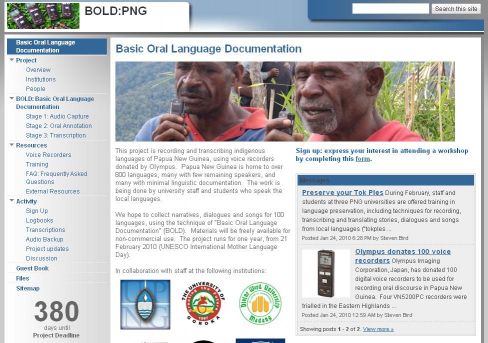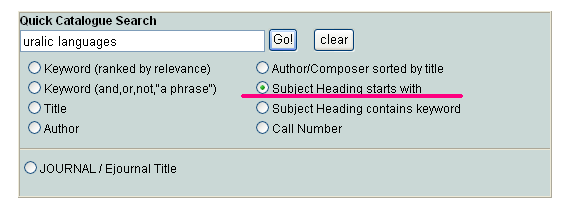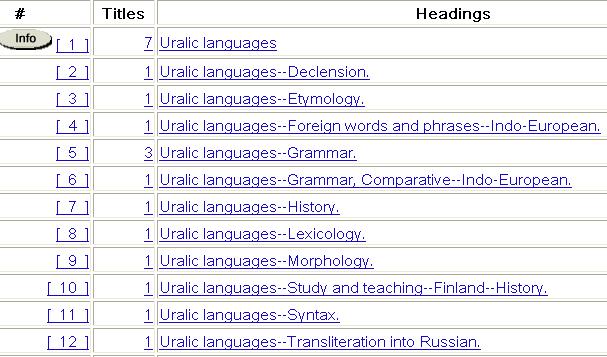February 18th, 2010 by Susan Atkey | No Comments »
February 21st marks UNESCO’s International Mother Language Day. IMLD has been observed yearly since February 2000 to promote linguistic and cultural diversity and multilingualism.
IMLD originated as the international recognition of Bangladesh’s Language Movement Day, which has been commemorated in Bangladesh since 1952 following government attempts in 1948 to make Urdu the sole national language and thereby angering the Bengali-speaking majority of East Pakistan. Anger and discontent peaked in 1952 when protesting students at the University of Dhaka were killed at a protest on 21 February.
Bengali was recognised as the second official language of Pakistan on February 29, 1956, and the constitution of Pakistan was reworded to “The state language of Pakistan shall be Urdu and Bengali.”
For more on the topic of the Bengali Language Movement, the 2008 book State language movement in East Bengal, 1947-1956 by A.M.A Muhith takes a comprehensive look at the issues. Tariq Rahman’s Language and politics in Pakistan (1996) looks at other political and cultural aspects of language in Pakistan,with chapters on British Language Policies and Imperialism; Pashto Language Movement; Urdu-Hindi Controversy; Language Movements of Balochistan, and more. Both of these titles are available at Koerner Library.
If you just want a summary, the Wikipedia entry on the Bangladesh Language Movement provides a good starting point; check out the list of citations at the end for more articles, newspaper reports, and more.
Posted in Uncategorized | No Comments »
February 5th, 2010 by Susan Atkey | 1 Comment »
A fascinating new language documentation project gets under way next week. The BOLD:PNG project (Basic Oral Language Documentation : Papua New Guinea) involves training university students and literacy teachers to collect and curate oral texts from native speakers of the 830 indigenous languages of Papua New Guinea, many of which are at risk of disappearing.

As the overview page for the site points out, this type of work has been done by linguists for years, however, this painstaking individual work can’t keep pace with the rate of language loss. The BOLD-PNG project addresses the problem of scale by training university students and literacy teachers to collect language data from native speakers over the course of the one-year project using voice recorders donated by Olympus.
For more on languages of New Guinea, check out the entries on New Guinea Languages, Papuan Tip Languages and North New Guinea Languages in the International Encyclopedia of Linguistics, available online to UBC folks. The language lists in the entries on Papuan Tip Languages and North New Guinea Languages also include location and approximate number of remaining speakers.
We have a number of books on Papuan languages in Koerner, including a key text called Papuan languages of New Guinea by William Foley (part of the Cambridge language surveys).
Good luck to all involved in the project!
Posted in Uncategorized | 1 Comment »
January 20th, 2010 by Susan Atkey | No Comments »
Just noticed a number of new books on African languages which have arrived in Koerner Library:
We have a strong collection of materials on African languages and linguistics. If you want to search the library catalogue for more, this Guide to Subject Headings, Classification, and Call Numbers for African Languages will help get you started.
If you’d like to browse the stacks to see what’s available, the call number ranges are below. The majority of the collection is in Koerner Library; some material is housed in the ASRS (storage).
PL8000-8844 African languages and literature
PL8000-8009 Languages
PL8009.5-8014 Literature
PL8015-8021 Languages. By region or country
PL8024-8027 Special families of languages
PL8035-8844 Special languages (alphabetically)
Posted in Uncategorized | No Comments »
April 16th, 2007 by Susan Atkey | No Comments »

If you are interested in the Inuktitut language or oral traditions, you may want to see the upcoming screening of Atanarjuat: The Fast Runner at the Vancouver International Film Centre.
Atanarjuat is based on an ancient Inuit legend which takes place in the area around Igloolik. The film is in the Inuktitut language (with English subtitles).
Details:
Vancouver International Film Centre (Vancity Theatre)
1181 Seymour Street (corner Davie Street)
April 19, 2007 at 7:30 pm
http://www.academy.ca/events/screenclassics07.cfm
You may also wish to check out these books on the Inuktitut language at UBC Library:
From magic words to word processing : a history of the Inuit language by Louis-Jacques Dorais.
Inuit languages and dialects = Inuit uqausiqatigiit by Louis-Jacques Dorais.
Learning to speak Inuktitut : a grammar of North Baffin dialects by Alex Spalding
Inuktitut : a multi-dialectal outline dictionary by Alex Spalding & Thomas Kusugaq.
For more, browse the Subject Headings Inuktitut language or Inuit language in the library catalogue.
Posted in Uncategorized | No Comments »
March 22nd, 2007 by Susan Atkey | No Comments »
For students in Linguistics 319 (Comparative and Historical Linguistics) who are searching for books and articles on a specific language family for your annotated bibliography, here are some tips for finding resources.
The handbooks on different language families in the Reference section of Koerner Library (2nd floor) are a good starting point. We have handbooks on these language families:
The Dravidian Languages
Handbook of North American Indians. Vol. 17, Languages
The Indo-European languages
The Uralic languages
To find books on your language family, use the UBC Library catalogue. Try a Subject Heading search for your language family name. Remember to select the option “Subject Heading” instead of the default “keyword”.

You will then see list of Subject headings, along with the number of books we have on that subject (to the left of the Heading). Click a Subject heading to see a list of books and location.

Clicking on “Uralic Languages”, the first link, will turn up 7 books, including:
Uralic language family : facts, myths and statistics by Angela Marcantonio
Uralic languages, edited by Daniel Abondolo.
Uralic languages : description, history, and foreign influences, edited by Denis Sinor.
To find journal articles, you’ll need to take a slightly different approach. We don’t list the contents of each single journal in the library catalogue. The catalogue only lists the titles of the journals, not the contents of each individual issue. To find articles on your topic, you’ll need to use an article index. Then you can check the library catalogue to see if we subscribe to that journal.
The best source for Linguistics articles is an index called Linguistic and Language Behavior Abstracts (LLBA). This index, along with over 600 others on various topics, can be found in the A-Z list of indexes and databases.
Once you’ve entered the LLBA index, do a search for your language family. The index will return a list of citations that contain your search terms. To find a copy of the article at UBC Library, click the UBCeLink icon and it will search the catalogue for a copy of the journal.
Posted in Uncategorized | No Comments »




